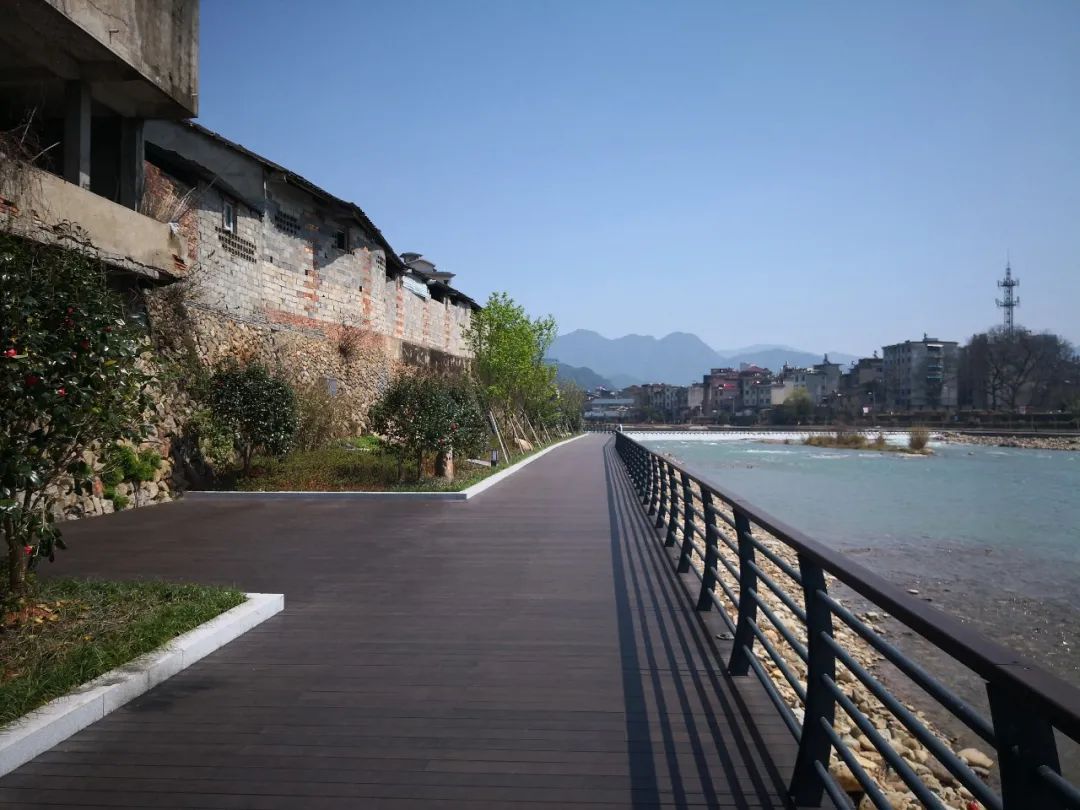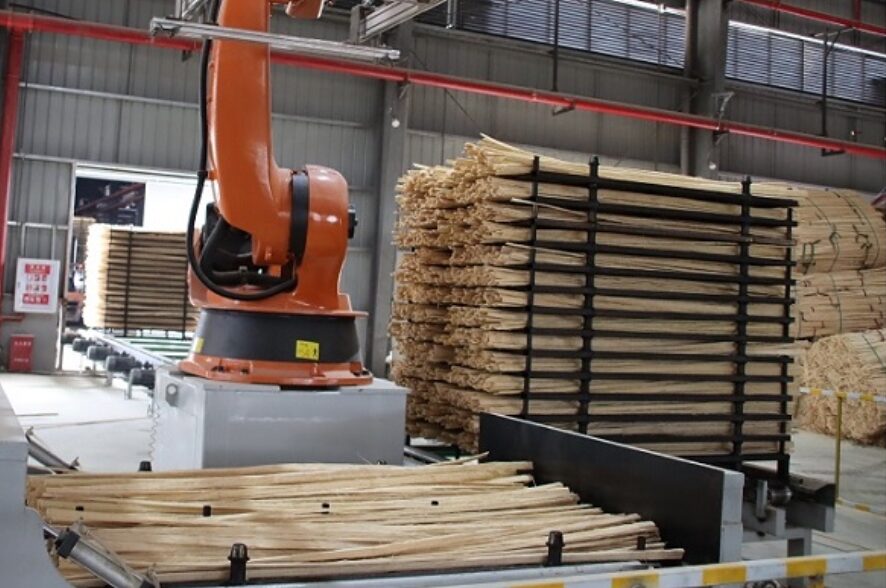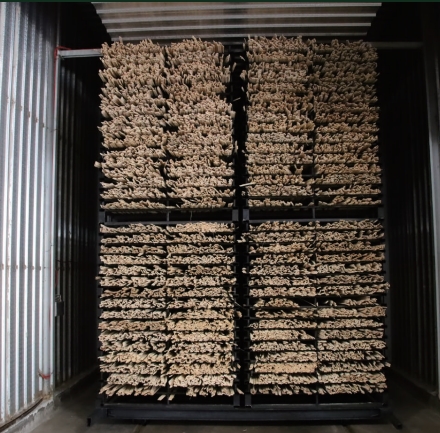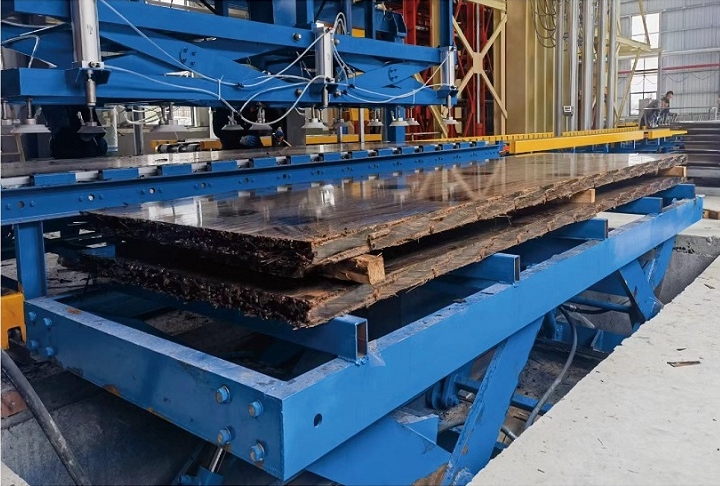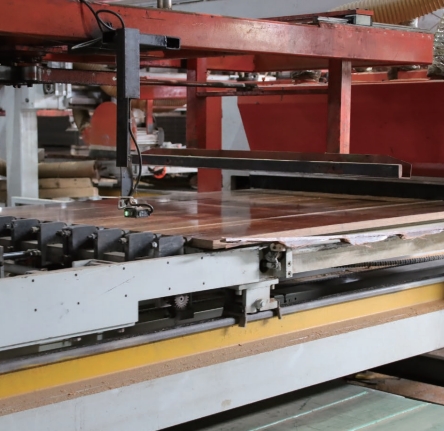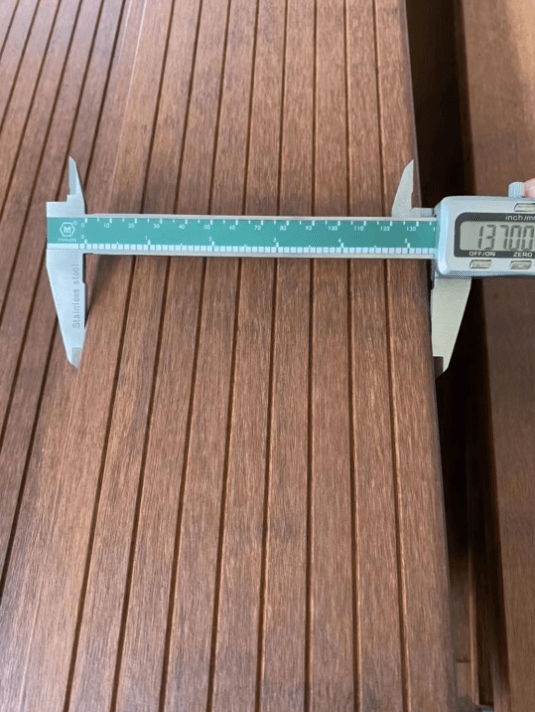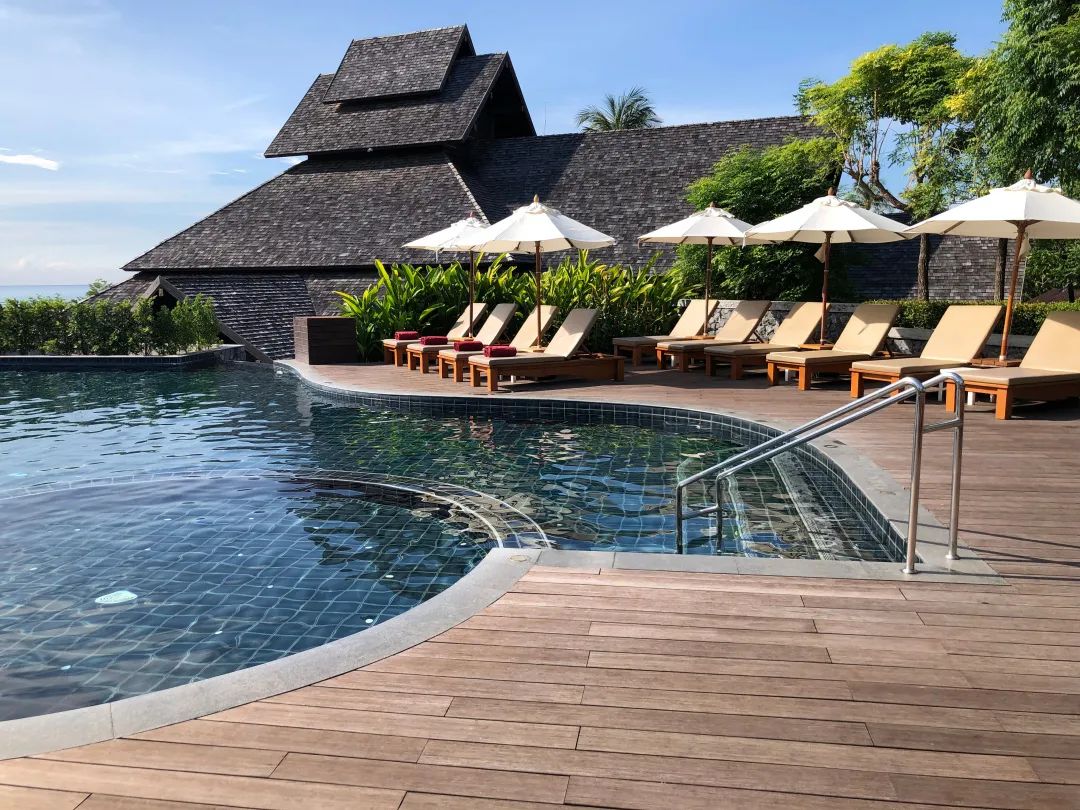Discover the Science Behind Thermo Bamboo
Revolutionizing Bamboo into High-Performance, Sustainable Materials
What is Thermo Bamboo?
Bamboo is a fast-growing and renewable resource. However, in its natural state, bamboo is prone to decay, deformation, and pest damage.
At ZHUART, we transform raw bamboo into Thermo Bamboo through a process of high-temperature thermal modification and high-density compression. This technology strengthens the bamboo’s molecular structure, creating a material that is:
Sustainable: Eco-friendly and renewable, with minimal environmental impact.
Durable: Resistant to rot, pests, and deformation, even in harsh conditions.
Dimensionally Stable: Performs exceptionally well in varying climates and moisture conditions.
The material is suitable for both interior and exterior applications.
Thermo Bamboo Production Process
1. Raw Material Selection
Moso bamboo (Phyllostachys edulis) aged 4-6 years is sourced from responsibly managed plantations in Fujian and Zhejiang provinces, regions renowned for their abundant, high-quality bamboo. At this maturity stage, the bamboo culms achieve optimal fiber density and structural integrity, providing a robust foundation for subsequent processing.
2. Strand Preparation
The harvested bamboo stems are split into uniform strips, and the outer skin and nodes are mechanically removed to ensure consistency. Each strip undergoes rigorous inspection, with defective material discarded to guarantee that only high-quality strands proceed to the next stage.
3. Thermal Modification
The bamboo strands are placed in a sealed chamber and heated to 200°C under controlled steam pressure. This process achieves three critical outcomes:
Sugar Removal: Eliminates sugar and nutrients that attract pests and fungi.
Color Transformation: Natural caramelization creates a consistent deep brown hue without artificial stains.
Enhanced Stability: Hydrolysis of hemicellulose breaks down moisture-sensitive molecular chains, improving dimensional stability.
This non-toxic process enhances bamboo durability without chemical preservatives, reducing swelling, shrinking, and warping during future use.
4. Resin Application
The thermally modified strands are immersed in Dynea® thermosetting phenolic resin to enhance strength and durability. Afterward, excess resin is drained, and the bamboo strands are dried, preparing them for compression.
5. High-Density Compression
The treated bamboo strands are layered into molds and compressed under extreme pressure and high temperature, curing the resin and forming an ultra-dense material. This stage achieves:
Increased Density: Up to 1200 kg/m³, surpassing most tropical hardwood species.
Structural Enhancement: Significantly improved dimensional stability, with superior wear resistance.
The 5,400-ton press is one of the largest press in the industry. It can press up to 4.2 metres in length and 60mm thick.
6. Shaping and Finishing
The compressed bamboo material is precision-cut and shaped to meet diverse project requirements:
Cutting and Profiling: Boards are processed into decking, cladding, or panels with precise dimensions.
Surface Treatment: Finished with eco-friendly oils for enhanced UV protection and environmental durability.
Quality Control: Each board undergoes rigorous inspection to ensure consistent color, smooth surfaces, and structural integrity, meeting ZHUART’s strict quality standards.
Key Benefits of Thermo Bamboo
Thermo Bamboo offers unmatched durability, dimensional stability, and sustainability compared to untreated bamboo and traditional hardwoods.
Benefits at a Glance:
Superior Durability: The highest resistance class to corrosion, fungi, and termites.
High Density: Stronger than most tropical hardwoods, perfect for heavy-duty use.
Dimensional Stability: Significantly reduce warping, shrinking, and swelling in extreme climates.
Fire Safety: Meets fire-safety Class Bf1-s1 (EN 13501-1) without the use of eco-damaging fire retardants.
Eco-Friendly & Healthy: Non-toxic, with lowest VOC emissions for healthier spaces.
ZHUART Thermo Bamboo has significantly higher density and greater resistance to bending under load than most of natural wood.
ZHUART Thermo Bamboo Technical Specifications
1. Density: 1.15-1.25 g/cm³ – Significantly higher than most natural woods.
2. Fire Resistance: Class Bf1-s1 (EN 13501-1) – Achieved without the use of fire retardants.
3. Corrosion Resistance: Class I (highest rating) – Highly suitable for use in coastal and industrial areas.
4. Mold Resistance: Grade 0 (highest rating) – Ideal for high-humidity outdoor environments such as poolside areas, wetlands, and tropical regions.
5. Anti-Termite: Class 10 (highest rating) – Maximum resistance to termite damage.
6. VOC Emission: Class E1 (lowest emission class) – Meets the highest environmental safety standards.
7. Modulus of Elasticity (MOE): ≥10,000 MPa – Far superior to most natural woods.
8. Modulus of Rupture (MOR): ≥80 MPa – Exceeds most wood materials, making it ideal for heavy-duty outdoor applications.
9. Swelling Rate (1h Boiling Test): ≤3% – Exceptional water resistance even under extreme moisture exposure.
10. Swelling Rate (24h in Water): ≤0.4% – Minimal thickness expansion after 24 hours of water absorption.
Leading the Way in Thermo Bamboo Production
ZHUART is one of the world’s largest manufacturer of thermo bamboo, with a proven track record in innovation and sustainable manufacturing.
Production Excellence: Our state-of-the-art manufacturing facilities span 163,000 square meters and produce up to 2,000,000 m² annually. Our products are exported to over 100 countries.
Patented Innovation: Backed by 16 patents, ZHUART leads the industry in thermo bamboo research, production, and technology.
Commitment to Sustainability: We combine nature’s most renewable resource—moso bamboo—with advanced techniques to deliver superior quality and environmental benefits. Our production process achieves a raw material utilization rate exceeding 90%, twice that of traditional methods.

